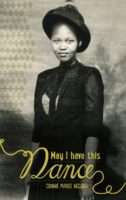I first experienced the barbarity of apartheid in November 1952, about the time I registered as a state nurse. It was a Sunday afternoon. I was looking forward to the end of my shift at 4.30 pm. Suddenly, there was a call on the intercom. “Emergency. Emergency in casualty. Please, everyone come.”
We left one nurse in the ward to watch the patients and rushed to casualty. What was usually a well-ordered unit was in utter chaos. There was blood everywhere, injured people groaning and pleading for help. They lay on stretchers, benches, wheelchairs, even on the floor, and still more ambulance drivers were pushing their way in with heavy stretchers. The injured threw up all over the place, probably from the teargas. The smell of vomit and beer made my throat clench.
Dozens of friends and family members anxiously pushed into the crowd, hoping to identify those on the floor. The police were there too, pulling people aside, asking questions, threatening, trying to find the ringleaders of what they called a riot.
My head reeling, I picked my way over bodies of people who were already dead, but had to be certified by a doctor before they could be removed, and started helping the doctors. It was heartbreaking to see innocent people so badly wounded. Some were confused, asking questions. Some still clutched their Bibles, fresh from church. What traumatised me the most, though, was seeing extreme hatred and anger on some of the white doctors’ and nurses’ faces as they manhandled the injured as if they were rags.
Where is their compassion? I wondered. Where are their ethics? I couldn’t understand how they could despise their fellow South Africans so much even as they removed bullets and stitched up wounds. Some of the injured had been shot in the head and the back. If they survived, they would probably be permanently crippled or paralysed.
One young man came in clutching his eye and yelling with pain. He refused to take his hand away until he had to be given a pain injection. When I finally pried it away, my heart sank to see his eye almost hanging sideways. I lost hope that he would ever see again, young as he was. He was immediately rushed off to the operating theatre. I never saw him again.
We worked through the night, treating the injured and making them as comfortable as possible. But it was clear to me that many of them would be permanently disfigured. It was equally clear that these people had done nothing wrong to deserve such terrible treatment.
By early the following morning the chaos had subsided. I felt hungry, dirty, tired. We were busy tidying up when we noticed some freshly dressed visitors inquiring about their loved ones. Not the injured this time, but those who had gone to work and not come home. I had come on duty at 7 am on Sunday. It was now 6.30 am on Monday.
Sol was one of these visitors. He seemed shocked to see wounded patients still lying around, either waiting to be discharged or admitted to the wards. “I tried to come through during the night,” he said. “The police had put up a barricade. I decided to go home and try again in the morning.” He was very relieved to see me.
On our way home I told Sol I did not know what the crowd had been protesting against. I suspected it could have been the Pass laws, but in truth it could have been anything. The security police never passed up on an opportunity to act mercilessly towards any suspicious crowd. It was as if they thought that killing unarmed people was the solution to the country’s problems.
When we got home I told Sol everything I had seen and done in the casualty ward. It was as though I had to get the story out of me. It was too heavy for me to carry alone. He listened kindly and was sad to hear about the poor state of those injured. “I’m so proud of you for helping those protesters,” he said. “You deserve some sort of recognition for serving your country. A medal.”
I gave a tired laugh and rested my head against his shoulder. “But no one knew I was even there,” I said. “It wasn’t as though they took roll call or even knew who was on duty. Everyone just showed up and did what needed to be done.”
By the morning many stories were going around. According to the newspapers, the crowd had been protesting against the murder of a nun who had done a lot to care for the sick in the vicinity of the Catholic church in Duncan Village. She had burnt to death, the newspapers said. But with politics one never knows the truth. The only truth that existed for me was that the apartheid system was unacceptable and that I had to be part of the effort to fight it.


